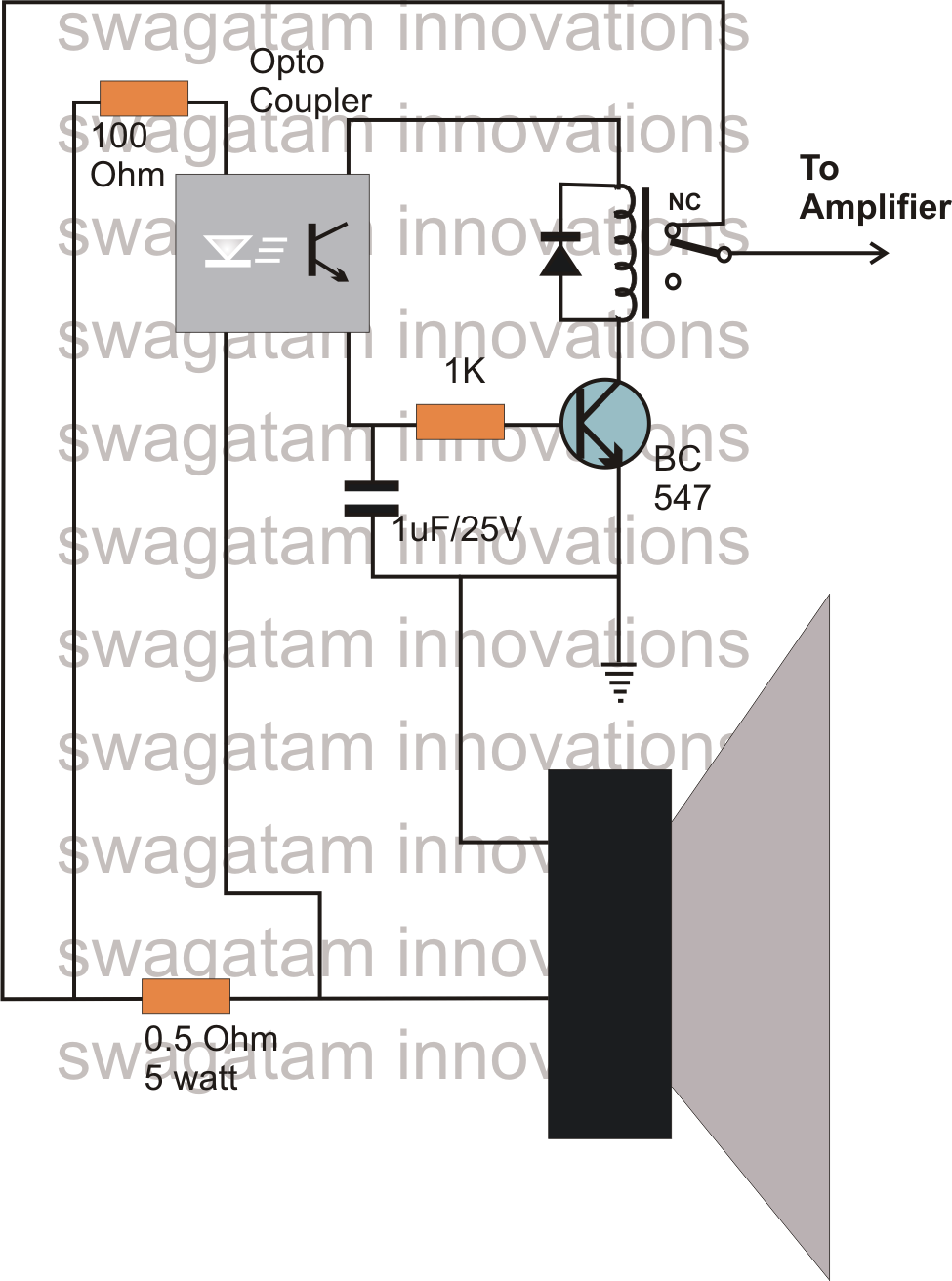At the time of dealing with high power amplifier designs, two things turn out to be essential, the security of the amplifier and the safety of the speakers from an accidental over current influx.
Particularly whenever the amplifier design entails expensive mosfets, the design turns into in particular susceptible to short circuits at the outputs.
A brief circuit at the output might be triggered as a result of mishandling or ignorance from the part of the user.
Anything could be the cause, the final result in the devastation of the valuable mosfets inside the amplifier box.
The above mishap may be eliminated by attaching a small circuit for detecting a brief circuit conditions at the outputs of an amplifier.
The presented amplifier short/overload protection circuit diagram, demonstrates a cheap design utilizing just a single transistor for applying the meant feature.
Usually a low value resistor is normally used at the output of mosfet amplifiers, the current designed across this resistor could be well used for tripping a relay just in case it surpasses the safe highest current value.
The current threshold across the above resistor is felt by an LED inside an optocoupler, which illuminates the instance a short or overload problems is imagined.
This immediately causes the opto transistor which often switches ON the transistor driver and the connected relay mechanism.
Considering that the relay coils assist the amplifier link to the speaker output, disconnects the amplifier from the output connection, stopping the amplifier devices from a likely harm.
The capacitor at the base of the transistor maintains the transistor switched for a few seconds so that the relay will not oscillate randomly.

Thanks Sir!
Hello, Can you give me the formula to calculate the output resistor?
Thanks.
The indicated 0.5 ohm is calculated using the following formula:
R = 1.5 / cut-off current